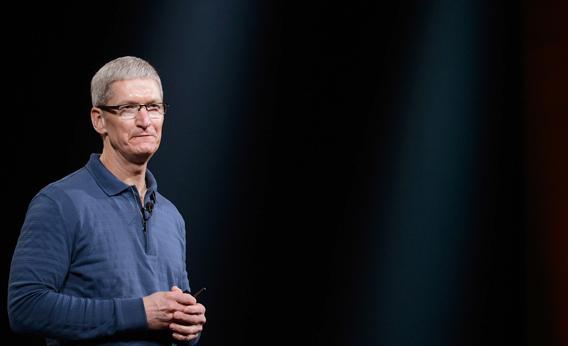How does a company earn almost $30 billion over four years with no employees and no physical office? That’s the miraculous tale of Apple Operations International, an Ireland-based shell company established by Apple for the purpose of making profits disappear from the prying eyes of the tax man. Every large international firm has lots of fungible money, and tax law varies substantially from place to place, so companies shift that money around in tricky ways to minimize taxes. Viewed from the United States, Apple Operations International looks like an appalling tax dodge. The company, such as it is, is not registered in the United States, so the IRS can’t tax it even though it has no employees, no physical presence in Ireland, and has held 32 of its last 33 board meetings in Cupertino, Calif. Viewed from Ireland, it also looks like an appalling dodge. It’s exempt from Irish taxation, too, on the grounds that it’s not managed in Ireland.
A fascinating new report released Monday afternoon from Sen. Carl Levin (D-Mich.) and the Senate Permanent Subcommittee on Investigations discloses that this is just one of the tricky maneuvers Apple uses to minimize its tax bill.
During the period under examination, AOI was responsible for fully 30 percent of Apple’s net income. Yet Apple paid no corporate income tax whatsoever on that income–not America’s (high) 35 percent statutory corporate income tax rate, and not Ireland’s much lower tax rate. The subcommittee’s work—and an earlier look last fall at Microsoft and Hewlett-Packard—is a valuable reminder that there’s more than engineering genius in the high-tech sector. Some of the world’s most ingenious tax lawyers are working away on these schemes. In prepared testimony posted to Apple’s website Monday, and expected to be delivered before the subcommittee on Tuesday, CEO Tim Cook says that “Apple pays all its required taxes, both in this country and abroad.” But of course that’s the point: A sufficiently motivated team can find all kinds of clever ways to keep those taxes down.
Despite the report’s flashy conclusions, I wish the committee would leave Cook and Apple alone.
The contortions high-tech firms go through to minimize taxes attract a lot of attention. That’s especially true because these schemes officially send a huge share of their profits overseas. Before that money can be used for anything, it would need to be “repatriated” and taxed. Consequently you get the bizarre spectacle of cash-rich Apple going into debt to finance a dividend in order to continue avoiding taxes.
So we can agree that all the chicanery is unseemly. But still: Apple paid $6 billion in taxes to the Treasury in the 2012 fiscal year and says it anticipates paying $7 billion this year. By contrast, Citizens for Tax Justice has compiled a list of 26 major American companies that paid no taxes whatsoever from 2008 to 2011. That includes Boeing, Verizon, GE, and a slew of electrical utilities like PG&E, Pepco, and ConEd.
These zero-tax companies weren’t doing anything illegal. Rather it was thanks largely to an affirmative act of Congress that enabled companies to claim “accelerated depreciation” of their physical assets to offset earnings. As Martin Sullivan, chief economist at Tax Analysts, has pointed out, these tax breaks especially benefit the manufacturing sector. The fact that Carl Levin, Michigan’s senior senator, is criticizing the tech sector tells you more about what kind of firms are located in his home state than about what kind of firms are really ducking taxes.
The really big losers in the system, meanwhile, are typically big retailers and health insurance companies that don’t benefit from manufacturing tax subsidies and don’t have major foreign operations where earnings can be hidden. Meanwhile, the absurd stockpiling of cash in offshore tax havens by tech companies means that the money really can’t be used. Unless Congress relents and offers Apple et. al. a tax-free “repatriation holiday,” that money is largely inert. Which brings us to the underlying issue: Corporate income tax isn’t a very good idea.
AOI’s totally untaxed earnings show us why. Suppose Apple had that $30 billion in the U.S. There are really only three things Apple can do with that money. It can give it to shareholders through dividends or share buybacks, in which case it’ll be taxed as dividend or capital gains income. It can give it to executives and other employees as compensation, in which case it’ll be taxed as income. Or it can be used to acquire other companies, in which case it becomes the taxable income of the companies’ previous owners. If Congress believes that Cook and his colleagues should be paying higher taxes on their pay, then it can raise taxes on high-income individuals. If Congress believes that Apple shareholders should pay higher taxes on their dividend income, then raise the dividend tax rate.
Congress could even levy an excise tax on consumer electronics if it wanted to simultaneously raise revenue and hurt Apple’s profits. One of the great advantages of people is that unlike corporations, they need to have physical locations. So don’t tax corporations. Decide what people you want to tax—ideally rich executives and large shareholders—and then tax them. It won’t make as good political theater, but it’ll be simpler and fairer in the end.
